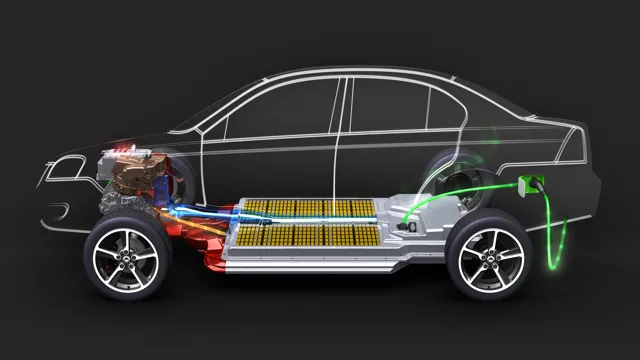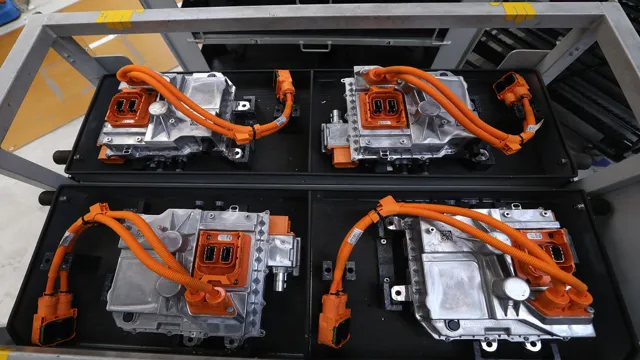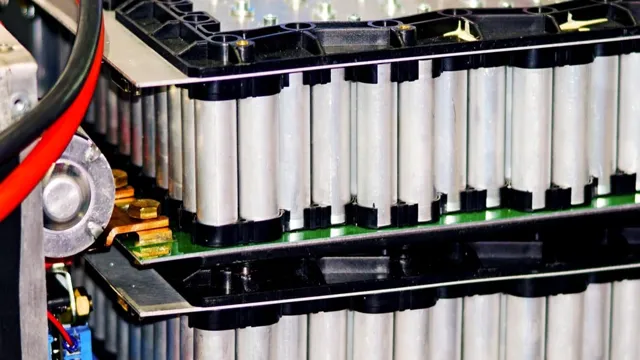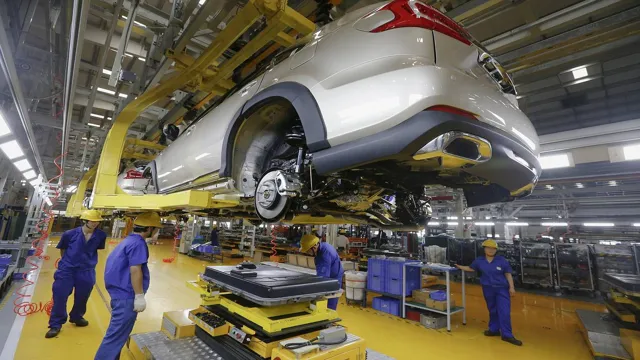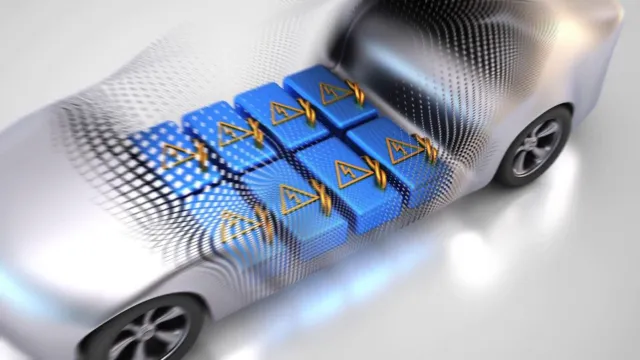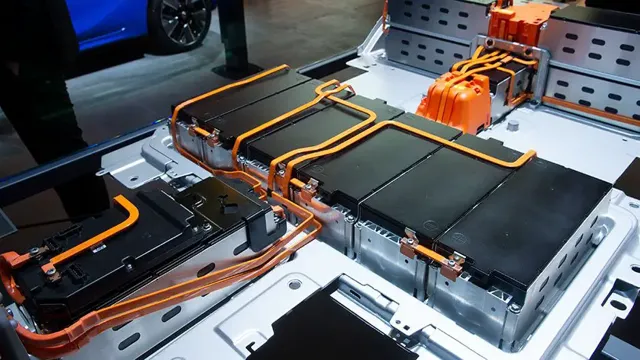Powering the Future: How Batteries in Electric Cars are Revolutionizing the Automotive Industry
Electric cars are taking the world by storm, revolutionizing the way we drive and how we look at transportation in general. In fact, electric vehicles have already become a significant part of the automotive industry with their increasing popularity, and for a good reason. Just like conventional cars, electric cars have batteries, but how they power their engines is where significant differences lie.
Electric cars use batteries that are designed to store energy that drives the vehicle’s motor. These batteries are incredibly efficient and have a considerable advantage over traditional combustion engines that rely on gasoline. This blog is all about exploring Electric Car Batteries: The Power Source of the Future and how they’re revolutionizing the automotive industry.
One of the most significant advantages of electric car batteries is that they are far more environmentally friendly than their gasoline-powered counterparts. Electric cars emit considerably less CO2, meaning they’re better for the environment and contribute to the global battle against climate change. This is because they do not require fossil fuels to operate, unlike internal combustion engines, which rely heavily on gasoline.
Another advantage of electric car batteries is their cost-effectiveness. Today, you can recharge your EV batteries at home or at public charging stations, eliminating the need for frequent trips to conventional gas stations. This means that electric cars are much cheaper to operate than their gas-powered counterparts, in addition to being cheaper and easier to maintain.
In conclusion, electric car batteries are the future of the automotive industry. As electric vehicles gain popularity, the use of electric batteries will become more prevalent, making them a more viable and sustainable option for personal transportation. With their remarkable advantages, we can expect to see them becoming more affordable and more efficient in the coming years.
Battery Basics
When it comes to electric cars, the battery is the heart of the vehicle. It stores the energy that powers the electric motor and propels the car forward. But how does it work? Essentially, the battery is made up of multiple electric cells, each containing a positive electrode (cathode), a negative electrode (anode), and an electrolyte solution that allows charged particles (ions) to flow back and forth between the electrodes.
When the battery is charging, an external power source pushes electrons into the anode, creating negative ions that travel through the electrolyte to the cathode. When the car is in use, those negative ions flow back through the electrolyte, creating positive ions that move through the anode and power the motor. It’s a complex system, but the result is a car that produces zero emissions and runs quietly and smoothly.
The battery in electric cars is constantly improving, with better capacity, faster charging times, and longer lifespan. As the technology continues to evolve, we can expect even more exciting developments in the world of electric vehicles.
How Electric Car Batteries Work
Electric car batteries are the heart of an electric vehicle, providing the needed energy to power the electric motor and keep it going. These batteries consist of several cells that store electrical energy chemically, and when used, convert the stored energy into electricity. One type of battery that is commonly used in electric cars is the lithium-ion battery due to its high energy density, lightweight, and long lifespan.
These batteries use lithium ions that move from the positive electrode to the negative electrode during charging, and vice versa during discharging, creating an electric current that powers the electric motor. Maintaining the battery’s charge and discharge rate within optimal limits is crucial to ensure its effectiveness and avoid reducing its lifespan. However, as technology advances, researchers are continuously exploring ways to improve the performance, range, and durability of electric car batteries.
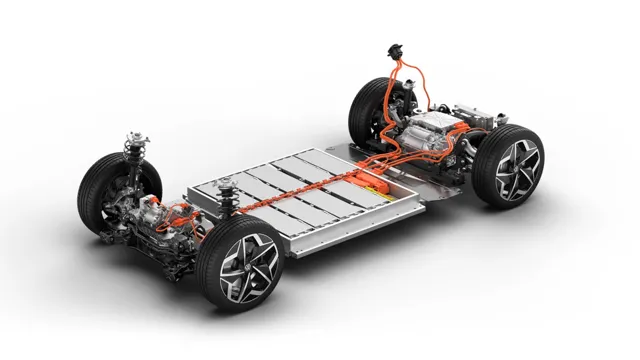
Types of Batteries Used in Electric Cars
Electric car batteries come in many different types, each with its own unique set of advantages and disadvantages. However, they all essentially work the same way: by storing energy in the form of chemical reactions that can be drawn upon to power the car’s electric motor. These batteries are made up of hundreds or thousands of cells, each containing two electrodes separated by an electrolyte.
When the battery is charged, electrons flow from one electrode to the other, creating a charge differential that can be used to power the car. The type of battery used in an electric car can have a significant impact on the car’s overall performance, range, and efficiency. As such, it’s essential to consider factors such as cost, energy density, cycle life, and sustainability when choosing the right battery for your electric car.
Charging and Range
When it comes to electric cars, the battery is a crucial component that determines both the range and charging times of the vehicle. While modern lithium-ion batteries have significantly improved these factors, they still remain a concern for many potential buyers. The range of an electric car depends on several factors, including the capacity of the battery, driving conditions, and the driver’s behavior.
The larger the battery, the more miles the car can travel before needing to be charged. However, even the largest electric car batteries still need to be recharged periodically. The charging time for an electric car can vary depending on the type of charger used, the size of the battery, and the amount of charge remaining.
A typical level 2 charger, which is commonly found in public charging stations, can recharge a battery in a few hours, while a fast DC charger can charge up to 80% of the battery in as little as 30 minutes. It’s important to consider the battery and charging factors when choosing an electric car to ensure that it meets your needs for range and charging convenience.
Charging Options for Electric Car Batteries
When it comes to electric cars, one of the most common concerns is range anxiety. That fear of running out of battery charge in the middle of nowhere. Fortunately, there are several options for electric car charging, making it easier to recharge and extend the range of your electric vehicle.
The most common type of electric car charging station is called a Level 2 charger, which can provide up to 25 miles of range per hour of charging. However, for a quick recharge, DC fast charging stations are ideal, allowing you to get up to 80% of battery charge in as little as 30 minutes. It’s also worth noting that you can charge your electric car at home using a standard wall outlet or a Level 2 charging station.
The choice of a particular charging option depends on factors such as your driving habits, car’s range, and charging infrastructure in your area. Regardless of which charging option you choose, the key takeaway is that it’s easy and convenient to keep your electric car charged and ready to go at all times.
Factors That Affect Electric Car Range
When it comes to electric cars, one of the biggest factors that affects their range is charging. The type of charger used, the amount of time spent charging, and the frequency of charging all play a role in determining how far an electric car can go on a single charge. For example, using a DC fast charger can provide a quick boost to the battery, but frequent use can put extra strain on the battery in the long run.
On the other hand, using a Level 1 charger at home may take longer, but can be less taxing on the battery and more cost-effective in the long run. It’s important to consider these factors and plan your charging habits accordingly to ensure you get the most out of your electric car’s range. So, the key is to find a charging strategy that works best for you and your lifestyle.
How to Maximize Your Electric Car Battery Range
When it comes to maximizing the range of your electric car battery, charging is a critical factor to consider. The type of charging station you use can affect the speed and efficiency with which your car charges. Level 1 charging stations use a standard household outlet and can fully charge your electric car battery overnight, but they are not the most efficient option.
Level 2 charging stations, on the other hand, use a 240-volt outlet and can charge your car much faster, providing approximately 25 miles of range per hour of charging. Additionally, as electric cars continue to gain popularity, more and more public charging stations are popping up, making it more convenient for you to give your EV a quick boost of power while you’re out and about. By taking these charging considerations into account, you can maximize your electric car battery range and ensure that you never get stranded with a dead battery.
Advancements in Battery Technology
Battery technology has come a long way in recent years, especially in the context of electric cars. The key component of electric vehicles is the battery that powers them. For years, range anxiety has been a major concern for EV owners, as the distance a car could travel on a single charge was limited.
However, advancements in battery technology have addressed this issue, and the latest models can now run for hundreds of miles on a single charge. These batteries are also more energy-dense, meaning they are capable of storing more electricity in a smaller size. The result is that electric cars are becoming more compact, lighter, and, in turn, more efficient.
Moreover, these batteries are now being designed with increased safety measures, improving the likelihood that they will not overheat or combust during use, addressing a primary concern in the EV industry. While battery technology continues to develop, one can only anticipate what the future holds. Individual consumers ultimately benefit from the advancements in battery technology, as they can expect improved performances and longer ranges from their electric cars.
However, it’s not just cars that will benefit from this technology, as advancements in battery tech have far-reaching implications for other products, such as smartphones, laptops, and even homes. In summary, the battery in electric cars plays a critical role in making them viable options for sustainable transportation. With enhanced capacity, safety, and efficiency, the automotive industry has come a long way in perfecting its energy storage technology, likely leading to even more impressive improvements to come.
New Battery Types and Their Benefits
Advancements in battery technology have opened up new horizons for energy storage. Some of these new battery types include lithium-sulfur, sodium-ion, and solid-state batteries. Lithium-sulfur batteries have the potential to store more than three times the energy that a conventional lithium-ion battery can store.
This makes them ideal for use in electric vehicles and renewable energy storage systems where energy density is crucial. Sodium-ion batteries are another promising technology that offers a cheap and sustainable alternative to lithium-ion batteries. They use sodium ions instead of lithium ions, which are abundant in the earth’s crust.
Solid-state batteries are also gaining popularity due to their high energy density and safety compared to conventional liquid electrolyte batteries. Although they are still in the experimental phase, these batteries have shown potential for use in electric vehicles and portable electronics. With continued research and development, these new battery types could revolutionize the way we store and use energy, making it more sustainable, efficient, and affordable for everyone.
Efforts to Improve Electric Car Battery Life
Electric Car Battery Life Electric car manufacturers have been working tirelessly to improve battery technology in order to increase the range and lifespan of electric vehicles. One of the most exciting advancements in battery technology is the use of solid-state batteries. Solid-state batteries are much safer and more efficient than traditional lithium-ion batteries.
They have the potential to increase EV range by up to 500% and significantly reduce charging times. In addition to solid-state batteries, many companies are also working on improving the materials used in batteries to make them lighter, more durable, and more sustainable. This has led to the development of new materials such as graphene, which is being used to create more efficient, lightweight batteries.
With these advancements, the future of electric mobility looks brighter than ever.
The Future of Electric Car Batteries
Battery technology is rapidly evolving and this will have a significant impact in the future of electric cars. The current lithium-ion batteries have served us well and have become the go-to for electric cars. However, they have limitations in terms of their range and charging time.
The future belongs to solid-state batteries that are safer, more energy-dense, and have faster charging capabilities. Instead of using the liquid electrolytes found in lithium-ion batteries, they replace them with a solid electrolyte that is safer, lighter, and less prone to overheating. These batteries could double or even triple the range of current electric vehicles, making them competitive with gasoline-powered cars on long trips.
These technologies are still in their early stages, but it’s exciting to think about the possibilities they could bring to the electric car industry.
Conclusion
In conclusion, a battery in an electric car is more than just a power source. It’s a symbol of the progress we’ve made in sustainable transportation. With the ability to store and release energy on demand, the electric car battery has revolutionized the way we think about mobility.
And while it may seem like a small component, the battery is the heart and soul of the electric car, powering a cleaner and smarter future. So next time you hear someone say “electric cars just don’t have enough range,” remind them that a battery is more than just a buffer, it’s the key to unlocking a limitless world of sustainable transportation.”
FAQs
What is the average lifespan of a battery in an electric car?
The average lifespan of a battery in an electric car is around 8-10 years, or approximately 100,000 miles.
Can the battery in an electric car be replaced?
Yes, the battery in an electric car can be replaced. However, replacement costs can range from $3,000 to $5,000 depending on the make and model of the car.
How long does it take to charge the battery in an electric car?
The charging time for an electric car battery depends on the size of the battery and the type of charging station used. It can take anywhere from 30 minutes to 12 hours.
What is the range of an electric car on a single charge?
The range of an electric car on a single charge can vary depending on the make and model of the car, as well as driving conditions. However, most electric cars have a range of around 100-250 miles.
